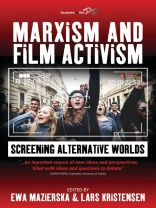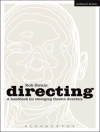In Theses on Feuerbach, Marx writes, “The philosophers have only interpreted the world differently; the point is to change it.” This collection examines how filmmakers have tried to change the world by engaging in emancipatory politics through their work, and how audiences have received them. It presents a wide spectrum of case studies, covering both film and digital technology, with examples from throughout cinematic history and around the world, including Soviet Russia, Palestine, South America, and France. Discussions range from the classic Marxist cinema of Aleksandr Medvedkin, Chris Marker, and Jean-Luc Godard, to recent media such as 5 Broken Cameras (2010), the phenomena of video-blogging, and bicycle activism films.
Spis treści
List of Figures
Introduction
Ewa Mazierska and Lars Kristensen
PART I: PAST ACTIVISM
Chapter 1. Between socialist modernisation and cinematic modernism: the revolutionary politics of aesthetics of Medvedkin’s cinema-train
Gal Kirn
Chapter 2. Politics and Aesthetics within Godard’s Cinema
Jeremy Spence
Chapter 3. Marker, Activism and Melancholy: Reflections on the Radical ‘60s in the later films of Chris Marker.
Jon Kear
Chapter 4. Marx Immemorial: workers and peasants in the cinema of Jean-Marie Straub and Danièle Huillet
Manuel Ramos Martinez
Chapter 5. In the Heat of the Factory: The Global Fires of The Hour of the Furnaces
Bruce Williams
PART II: PRESENT ACTIVISM
Chapter 6. Contemporary political cinema: the impossibility of passivity
William Brown
Chapter 7. Cultural resistance through film: The case of Palestinian cinema
Haim Bresheeth
Chapter 8. The Contemporary Landscape of Video-Activism in Britain
Steve Presence
Chapter 9. Marxist Resistance at Bicycle Speed: Screening the Critical Mass Movement
Lars Kristensen
Chapter 10. Tales of a video blogger
Michael Chanan
Chapter 11. Recovering the Future: Marxism and Film Audiences
Martin Barker
Notes on Contributors
Index
O autorze
Lars Kristensen is a Lecturer in Media, Aesthetics, and Narration at University of Skövde. He has published mainly on cross-cultural issues related to Russian cinema and is the editor of Postcommunist Film: Russia, Eastern Europe and World Culture (Routledge, 2012) and co-editor, with Eva Näripea and Ewa Mazierska, of Postcolonial Approaches to Eastern European Cinema: Portraying Neighbours On-Screen (I.B. Tauris, 2014).












